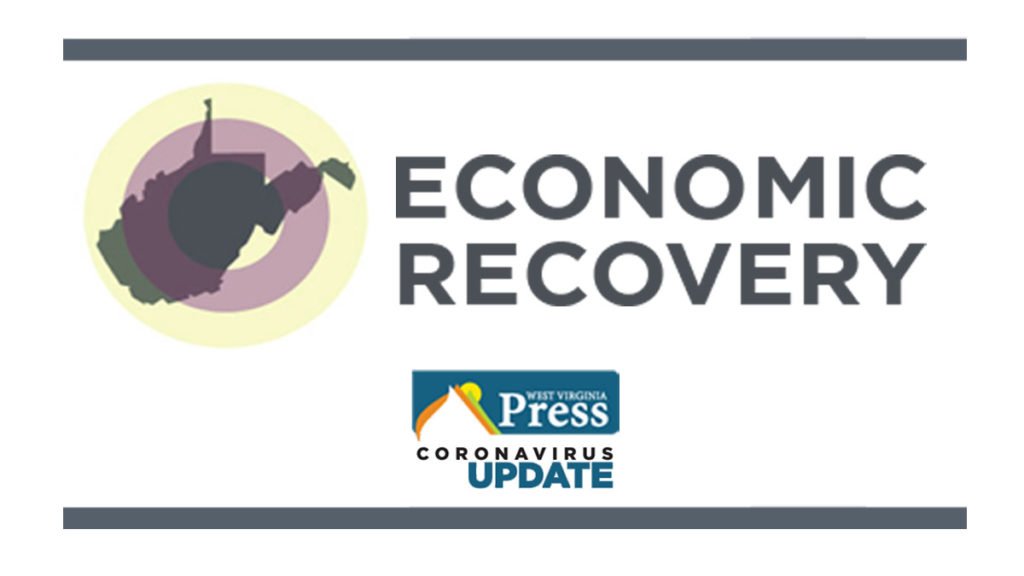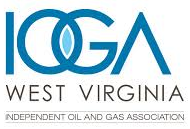Industry officials say U.S. Supreme Court decision means pipeline work will resume but worker safety is still a priority
By Lexi Browning
West Virginia Press Association
CHARLESTON, W.Va. — Facing the coronavirus pandemic and a historic drop in oil prices in April, workers in the oil and natural gas industry have been navigating a new series of challenges over the last three months.
Considered an essential service, the oil and gas industry was permitted to remain operational during West Virginia’s statewide Stay-at-Home order issued in late March.

Though many field operations continued, some major projects were put on hold, said Charlie Burd, executive director of the Independent Oil and Gas Association of West Virginia.

On Monday, one of those projects, the Atlantic Coast Pipeline, was given the green light to move forward with construction after the United States Supreme Court reversed a decision that prevented the pipeline’s work beneath a portion of the Appalachian Trail.
Once constructed, Burd said the Atlantic Coast Pipeline is expected to produce 1.5 billion to 2 billion cubic feet of natural gas from the Appalachian basin, running from West Virginia to North Carolina. The natural gas will then be used for power production and for other industrial uses, he said.
The pipeline is expected to create 1,500 jobs in West Virginia, and between 4,000-5,000 jobs throughout the other states. In the north central part of the state, an additional 33 miles of a supply line will feed into the main pipeline, he said.
With more jobs, more drilling, more royalties for landowners and more investments in communities and education, Burd said the Supreme Court’s decision is a “great” one.
“That’s a lot of people employed, and that’s certainly a key factor in helping West Virginia and these other states turn their economies around from the pandemic,” Burd said.
West Virginia alone produces around 2.1 trillion cubic feet of natural gas annually, Burd said, with 93 percent of the gas coming from about 3,330 wells.
Since the pandemic started, Burd said some companies made decisions to merge or have had layoffs due to the decline in the market.
“That has ripple effects across other sectors of the economy, and where the price has declined, there’s no market, and that’s affected the payments to royalty owners who’ve invested and rely on that income,” he said.

Burd said IOGA-WV has kept a portal of valuable resources for employees as they work around pandemic-related obstacles. Disseminating information from the state and national government organizations, including the Centers for Disease Control and Prevention, enabled members to find all the resources in one convenient location.
“As an association, we felt proud to provide this information to all of our member companies, because not only do we have the largest producers in the state, but we have the smaller producers too,” Burd said. “We proudly serve the [human resources] function to smaller companies who don’t have those in-house operations.”
Burd said he was especially proud of the way IOGA-WV members helped in their communities around the state. From assisting in installing portable sanitation devices for homeless individuals to delivering food to first responders to hosting blood drives for the Red Cross, Burd said their actions spoke loudly.
“That’s who we are,” Burd said. “That’s the kind of companies you want as good corporate neighbors.”
Moving forward, Burd said it was the organization’s goal to be as transparent as possible with their members and the public.
“We’ve made every effort to accomplish that.”
Ben Sullivan, executive vice president and general counsel for IOGA-West Virginia, said since the beginning of the outbreak, members have worked diligently to ensure consumers had necessary fuels while isolating at home.
“When [coronavirus] started, it was still cold in certain parts of our operations,” Sullivan said. “We did as an industry continue working to provide that fuel for consumers’ heating, cooking, power generation.”
Much of the operations on the ground continued without complication for personnel in the field, who account for an estimated 850 of the 1,100 employees, he said. Due to their placement in remote areas most days of the year, workers weren’t often working near others.
“We did institute a policy that frowned upon or discouraged, if not always prohibited, riding together in trucks,” Sullivan said. “They had to stay apart during transportation.”
Like other industries who often rely on personal protective equipment (PPE) for routine work, Sullivan said the organization worked to order masks and safety supplies at the beginning of the outbreak. Certain supplies, like hand sanitizer, though, were still difficult to find.
“We did ensure folks were following the guidelines,” Sullivan said. “If on site together, we were making sure they were staged apart and not standing side by side. Masks and gloves were recommended or required.”
Those who handled the legal paperwork found themselves maneuvering around fluctuating courthouse hours.
After working remotely, Sullivan said many colleagues have mentioned how much they’ve enjoyed having more time at home with their families now that they’re traveling less for business. Working and hosting meetings remotely, he said, could assist in saving time and money going forward.
“Folks who loved traveling for business, a number have said to me, ‘Hey, we’ve saved a lot of money doing video conferencing, and it’s helped in family life [where we’re] not traveling out of town,’” Sullivan said. “We, like most industries, will see a reduction in business travel. It’s good for efficiency [if they’re] not hanging out in the airport, and it will reduce costs, allowing us to be viable and maintain the business model.”
Sullivan said some of the occupational complications of coronavirus could be remedied by digitizing more documents and digital records. The oil and natural gas industry, he added, has assisted various county clerks and assessors in adding digital services over the last five to 10 years.
“That would continue to be tremendously helpful,” Sullivan said. “Our industry and many others would welcome the chance to work with the government and states and counties together to bring more services online that help the public.”
Phil Reale, an attorney and government relations consultant, said the pandemic has certainly had a “tremendous” global impact that has resulted in vastly reduced demand for the two fuels.
“Storage of natural gas is at 56-year highs,” Reale said. “Price of natural gas has fallen to a point where in most instances, it’s not profitable at all to continue to operate wells or drill new ones. You can’t justify the investment based on the current economy on stock prices below two dollars.”
Reale anticipates that the fuels will take a while to rebound after the pandemic, which will affect the job market, revenues collected, investments in the industry and royalties for property owners.
“It’s going to take a long time,” he said. “Years and not months, unfortunately. There will be less risk capital invested in new drilling, and that means there will be fewer new wells drilled, and with fewer new wells drilled, demand for contracting work is reduced.”
The hospitality industry in less populous regions like central West Virginia, he said, will be affected if fewer contractors are on the job. Today, Reale said groups sent to work on a site can rent out entire floors in a hotel, or for smaller lodgings, the entire hotels.
“A huge component of state revenue is based on natural gas severance tax revenues,” Reale said. “Severance taxes are five percent of revenues from the wells, and if prices per unit are low, that five percent is applied to a lower number and severance taxes go down.”
West Virginia, he noted, has a local level property tax for natural gas production, which can add up quickly. In the last few years, Reale said Doddridge County has amassed $20-21 million in revenue from property tax associated with natural gas production, and 70 percent was allocated to public education.
“The market for natural gas had declined precipitously through the end of 2019, and then came coronavirus,” Reale said. “Reduced demand worldwide and you’ve got an even bigger problem.”
Still, he anticipates natural gas to be around as a key player and as the “bridge fuel” between coal and cleaner energy for power production.
“It’s the one that will transition from what was to something cleaner until renewables have the capacities to deal with the demand for the country and the world,” Reale said. “It’s reliable and it’s clean. It’s not as clean as wind or sun, but right now, those cannot produce in the volumes necessary to create power. It will be sometime before that happens.”





